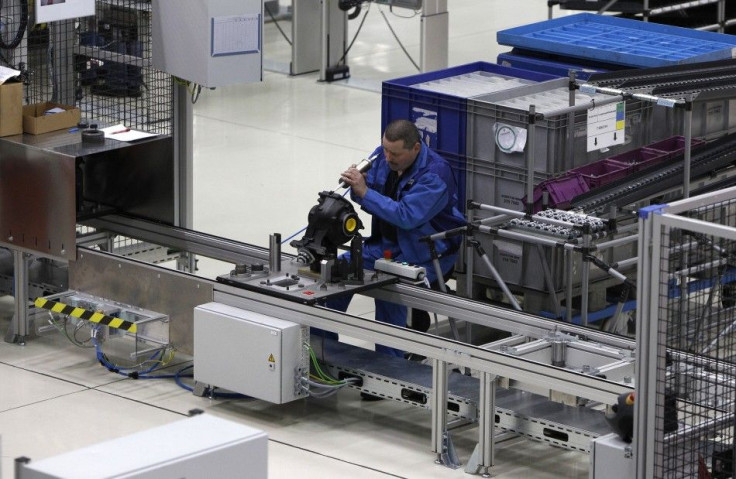German business climate improves for ninth straight month

Business confidence in Germany continued to improve further in February, posting gains for the ninth consecutive month.
The Ifo Institute's business climate index for the eurozone’s largest economy rose to 111.2 in February from 110.3 in January, the Ifo Institute for Economic Research said on Monday.
Economists had expected the index to rise slightly to 110.4 in February.
“The Ifo Business Climate for German industry and trade improved in February for the ninth time in succession. More firms have reported a better business situation than in the previous month. With regard to their business prospects for the coming half year, they continue to be optimistic. The up-swing in the German economy is robust,” said, Hans-Werner Sinn, president, Ifo Institute for Economic Research.
The expectations index, which measures business executives' expectations over the next six months, rose slightly to 107.9 from 107.8 last month.
Also, Ifo's current-conditions index increased sharply to 114.7 from 112.8 in the previous month on a seasonally adjusted basis.
The institute said the climate for manufacturers improved once again in February, with exporting firms expecting stronger impulses from foreign business.
But the survey found the business climate for retailers cooling off somewhat in February.
“Retailers are no longer quite as satisfied with their present business situation as before, but with regard to further business developments they have expressed somewhat more confidence,” the institute said.
Separately, the Markit Economics data showed the German manufacturing purchasing managers’ index (PMI) rose unexpectedly to 62.6 in February, recording the second fastest rise since April 1996.
“February’s Flash PMI figures indicate that the German economy maintained its strong start to 2011, with manufacturing output rising at the second-fastest rate in the 15-year series history. Germany appears on track for a steep upturn in GDP growth during the first quarter, led by manufacturing but also helped by the strengthening service sector recovery and a weatherrelated catch up in construction output,” said Tim Moore, senior economist at Markit.
In 2010, Germany’s gross domestic product (GDP) grew 3.6 percent, recording the fastest growth in nearly two decades.
According to the Federal Ministry of Economics and Technology, the German economy is expected to grow faster at 2.3 percent in 2011 than the 1.8 percent initially estimated in October 2010.
However, German manufacturers and service providers both recorded faster rises in their input prices during February, with the overall rate of cost inflation accelerating to its highest since the series began in January 1998, Markit said.
© Copyright IBTimes 2025. All rights reserved.





















